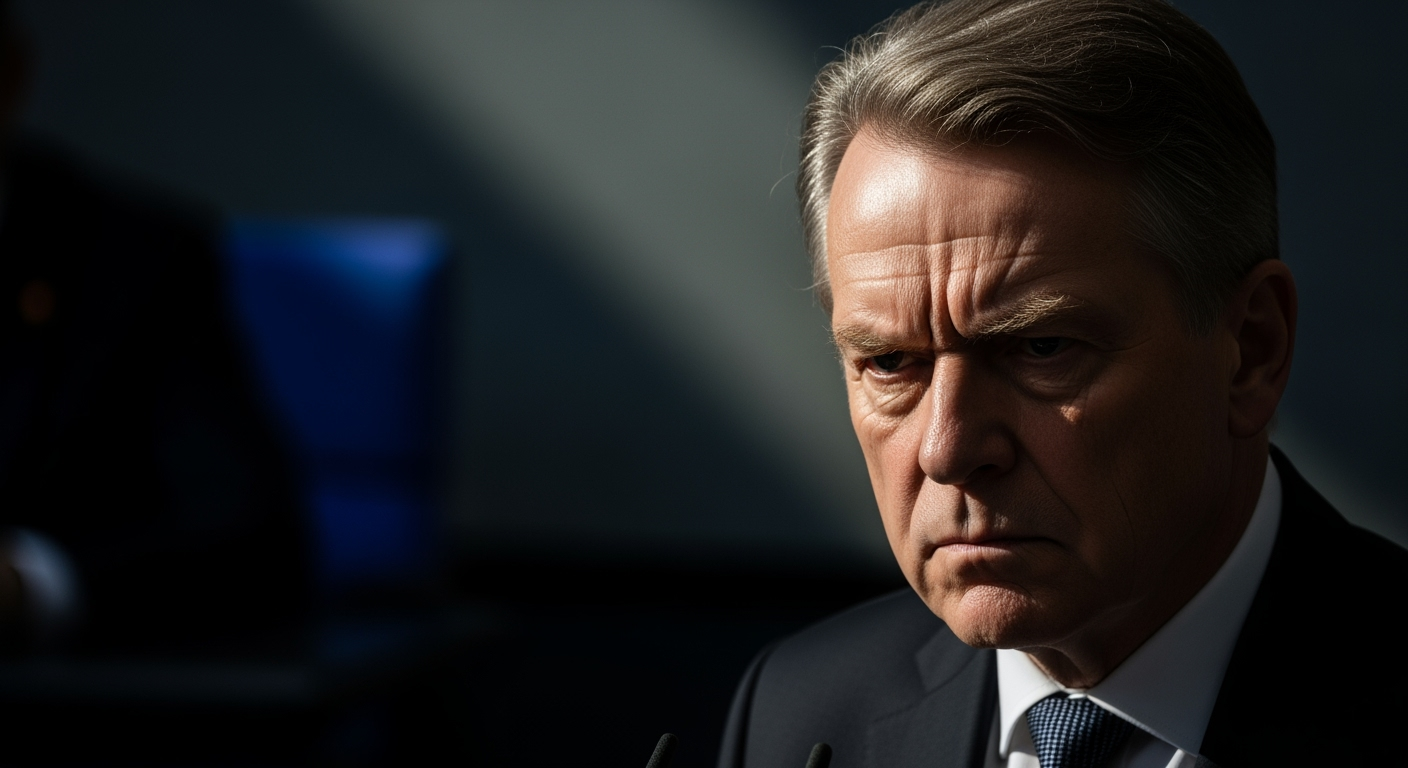Related Articles

The Fading Flame: Unraveling the Decline of Sexual Intimacy in Long-Term Relationships




BERLIN — German Chancellor Friedrich Merz is facing a firestorm of criticism for remarks on migration, which opposition parties and civil society groups have decried as racially insensitive and deeply divisive. The controversy centers on a comment made during a visit to Potsdam, where Merz spoke of a "problem in the cityscape" that necessitated "large-scale deportations," igniting a heated national debate over the language used in discussions surrounding Germany's immigration policies.
The contentious statement by Chancellor Merz occurred during an official engagement in Brandenburg. Asked about the burgeoning support for the far-right Alternative for Germany (AfD), Merz articulated his government's efforts to reform migration policy, claiming a 60% year-on-year reduction in migrant numbers. However, it was his subsequent assertion that "we still have this problem in the cityscape, and that is why the interior minister is working to carry out large-scale deportations" that sparked immediate and widespread condemnation.
The phrasing "problem in the cityscape" was swiftly interpreted by critics as a veiled reference to Germany's diverse urban populations, implying that individuals with migrant backgrounds are inherently problematic and targets for deportation based on their visible presence. Green parliamentary leader Katharina Dröge challenged Merz directly in the Bundestag, questioning how such a "problem" could be perceived "other than by the color of people's skin." Dröge labeled the statement "hurtful, discriminatory, and indecent" and urged the Chancellor to apologize for offending numerous people and dividing German society. Green Party co-leader Felix Banaszak echoed these sentiments, calling the remark disrespectful and dangerous, suggesting it questioned the belonging of individuals with migration backgrounds. Socialist Left Party leader Sören Pellmann joined the calls for an apology, stating Merz's "obvious slip in your wording was not only misplaced — it has driven another thorn into our democracy."
The Chancellor's remarks come against a backdrop of increasing pressure on mainstream parties to address concerns about migration, particularly with the far-right AfD gaining significant traction in recent polls and elections. Merz, who assumed the chancellorship in May 2025 after his Christian Democratic Union (CDU) won the German election in February, has consistently advocated for a tougher stance on irregular migration and accelerated deportations. This approach is widely seen as an attempt to appeal to voters drifting towards the AfD and reclaim ground on an issue that has become central to German political discourse.
Government spokesman Stefan Kornelius attempted to mitigate the backlash, suggesting that Merz's words were being "read too much into." Kornelius clarified that the Chancellor had spoken in his capacity as the CDU party leader, not as the head of government, and that Merz had prefaced his response by stating, "Now I have to briefly say something party-political." Furthermore, the controversial sentence was notably absent from the official minutes of the Federal Press Office's press conference where the remarks were made, an omission that did little to quell the outrage. Despite the government's efforts at damage control, critics like Integration Commissioner Natalie Pawlik of the Social Democrats branded the comments as "populist," arguing they further divide society and empower the "wrong people."
The "cityscape" comment is not an isolated incident but rather fits within Merz's broader and long-standing commitment to a stricter immigration framework. Since taking office, he has consistently pledged to implement a more assertive migration policy. His "five-point plan" on migration includes proposals for enhanced border controls, a ban on entry for undocumented migrants, and a significant acceleration of deportations. Merz's government had also issued an order in May to reject undocumented migrants, including asylum seekers, at Germany's borders, a policy that faced legal challenges and drew criticism from within his own coalition.
One of the most contentious aspects of this tougher stance is Germany's reported move towards finalizing an agreement with the Taliban for regular deportation flights of Afghan migrants. Interior Minister Alexander Dobrindt indicated that discussions with authorities in Kabul were at an "advanced stage," with plans for direct, regular flights. This potential deal has been met with severe criticism from human rights organizations and the United Nations, who warn that deportees could face torture or repression under Taliban rule, potentially violating international law. If finalized, this would mark Germany as the first European Union country to engage in direct cooperation with a regime formally recognized primarily by Russia.
The ongoing debate surrounding Merz's rhetoric and policies highlights deep divisions within German society regarding immigration and integration. Critics contend that such language not only stigmatizes minorities but also emboldens extremist narratives, further contributing to a hostile environment for those with migrant backgrounds. Refugee organizations, such as Pro Asyl, have accused the Chancellor of using "resentful slogans" that empower extremists.
The focus on "large-scale deportations" and a "problem in the cityscape" creates a narrative that associates migration with criminality and social disorder, a framing that critics argue is statistically inaccurate and rooted in racist ideologies. While concerns about security and orderly migration are legitimate, the manner in which these issues are discussed by high-ranking politicians carries significant weight and can profoundly impact social cohesion. The push for stricter policies, including controversial deportation agreements, signals a shift in Germany's approach to migration, moving away from the "Refugees Welcome" culture that characterized the country during the 2015 migrant crisis under former Chancellor Angela Merkel.
Chancellor Friedrich Merz's "cityscape" comment and the ensuing controversy underscore a critical juncture for Germany. As the nation grapples with complex migration challenges and the rise of the far-right, the language employed by its leaders holds immense power in shaping public perception and policy outcomes. The demands for an apology reflect a societal expectation for responsible discourse, particularly on sensitive issues of identity and belonging. Merz's commitment to a tougher migration stance, epitomized by his five-point plan and the pursuit of controversial deportation deals, indicates a firm direction for his government. However, the ongoing backlash demonstrates that this path is fraught with ethical concerns, political opposition, and the potential to further fragment an already sensitive social fabric. The debate will undoubtedly continue to define Germany's evolving identity and its place within the European and international community.